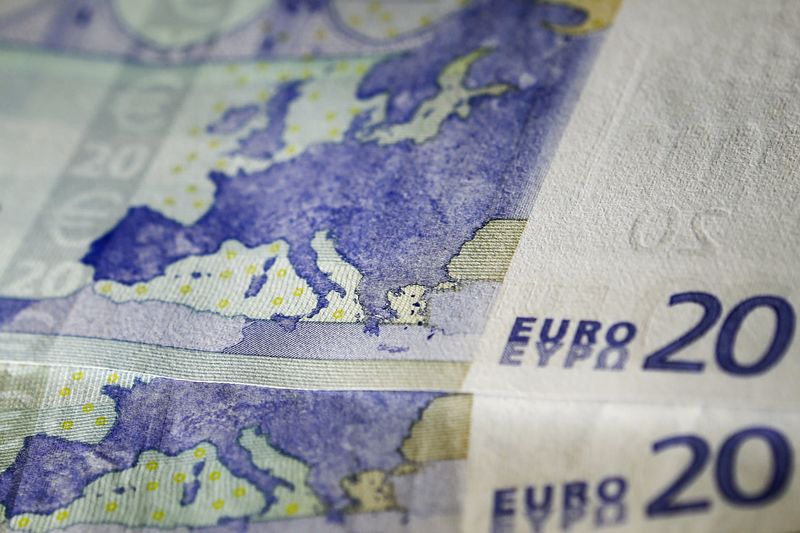Investing.com - The euro rose to the day’s highs against the dollar on Thursday after data showing that the unemployment rate in the region fell to its lowest level in over four years, while economic sentiment unexpectedly improved last month.
EUR/USD hit highs of 1.0807, the most since Monday and was last at 1.0846, up 0.64% for the day.
The euro zone’s statistical bureau Eurostat reported that the unemployment rate in the euro area fell to the lowest level in more than four years in November, dropping to 10.5% from 10.6% in October. It was the third straight monthly decline.
Another report showed that euro zone economic sentiment unexpectedly improved in December.
A survey by Eurostat and the European Commission showed that economic sentiment in the single currency bloc ticked up to 106.8 in December from November’s 106.1, compared to expectations for an unchanged reading.
A separate report showed that euro zone retail sales fell 0.3% from a month earlier in November after a revised 0.2% decline in October.
The largely upbeat data indicated that the uneven recovery in the euro zone is continuing.
Figures earlier in the week indicated that the annual rate of inflation in the euro zone rose just 0.2% in December, well short of the European Central Bank’s target of close to but just below 2%.
The weak data added to pressure on the ECB to step up measures to bolster price and economic growth in the region.
The euro pared back losses against the broadly stronger yen, with EUR/JPY last at 127.47, off 0.21% for the day after falling to eight month lows of 126.79 overnight.
Demand for the traditional safe-haven yen continued to be underpinned after China’s yuan weakened further on Thursday, exacerbating fears over the outlook for the world’s second-largest economy.
The People's Bank of China set its official yuan midpoint rate lower compared with Wednesday's fix.
While investors had expected the central bank to allow the currency to fall further amid an economic slowdown, the rapid pace of the depreciation has fueled fears that the world’s number two economy is weaker than believed.
Adding to risk aversion, trading on China’s stock markets was suspended for the second time this week after a plunge of more than 7% after the open.
Elsewhere the single currency hit two-and-a-half month highs against the weaker pound, with EUR/GBP advancing 1.05% to 0.7445.
Sterling has been pressured lower by uncertainty over risks stemming from a U.K. referendum on European Union membership, which Prime Minister David Cameron has said will be held before the end of 2017, but which many analysts expect to take place as soon as June.
